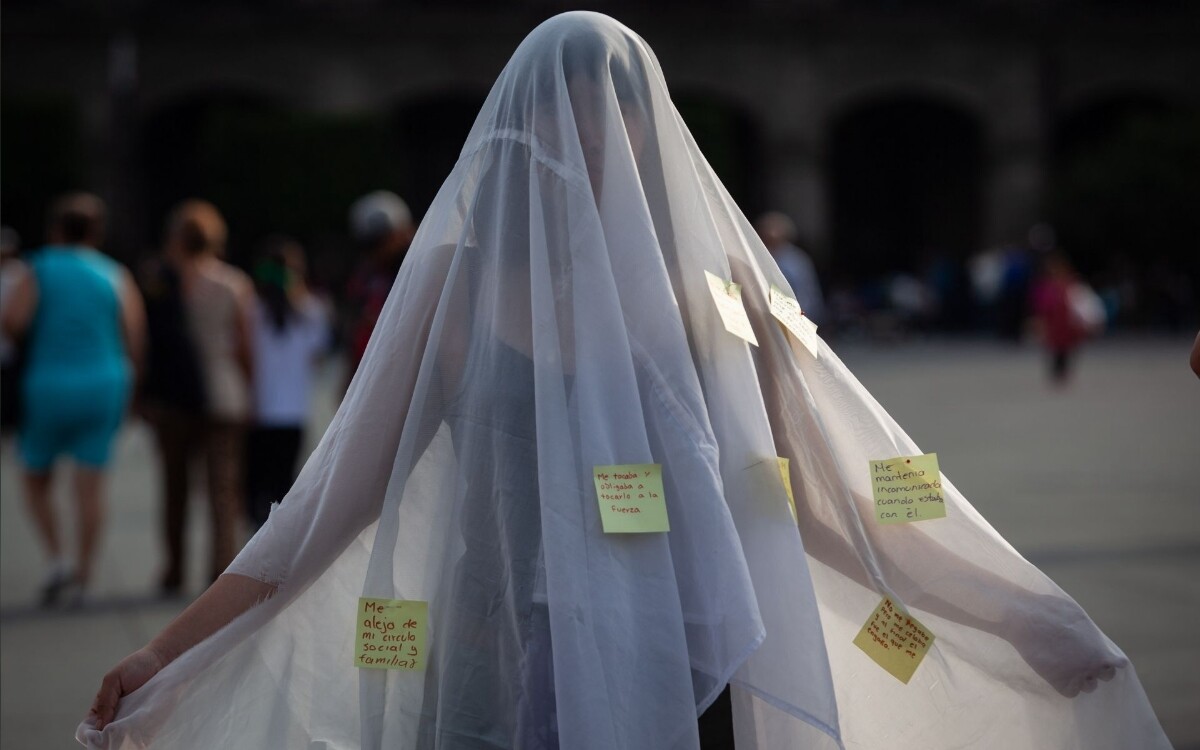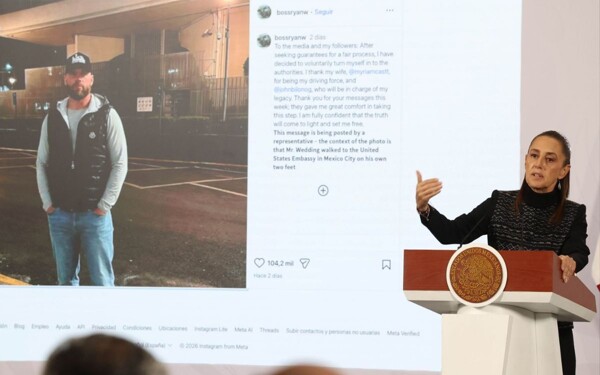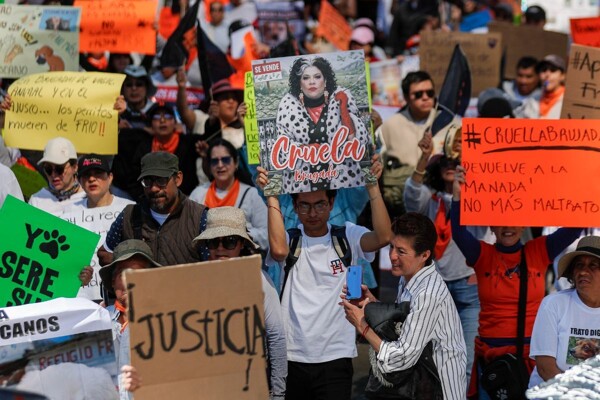
On the International Day for the Elimination of Violence Against Women, women took to the streets of Mexico City to demand an end to femicide, which kills an average of 10 women daily in the country, as well as justice for survivors, the disappeared, and all victims of sexist aggression and gender inequality.
Among their main demands were the cessation of the criminalization of protest and the killings of searching mothers, defenders, and activists, as well as effective access to legal and safe abortion.
They are raising their voices for those who are not here.
«Not all of us made it!» could be heard among the slogans of the demonstration in Mexico City. This is the second demonstration with Claudia Sheinbaum as the country's president, who has maintained the phrase «We all made it» as a government platform since taking power a little over a year ago.
Araceli Osorio, mother of Lesvy Berlín Rivera, marched again for her daughter, who was murdered at the National Autonomous University of Mexico in 2017. A femicide that authorities initially classified as suicide.
«Today we march above all for those who are not here, to show that we miss them (...) and to demand that because they were taken alive, we want them back alive; that they are not suicides, they are femicides, and that we are alive and we want to be alive,» she told EFE before the march began.
Alongside her, at the forefront of the protest, were other mothers of femicide victims, missing persons searchers, and survivors of attempted femicide.
After surviving two femicide attempts in 2020, Yeritza Bautista arrived at this 25N alongside the newly formed National Network of Femicide Survivors (Renase), which seeks to drive legislative changes, such as toughening penalties for the femicide crime, which reaches 11 years in prison, while the sentence for domestic violence is 9 years.
«I march for my story, for my companions' stories, and to support each other,» she told EFE.
Around 10 women are murdered daily in Mexico, and 25% of these crimes are investigated as femicide, that is, for gender reasons.
Yeritza Bautista pointed out that many of these attacks are classified as intentional injuries, domestic violence, attempted homicide, among others, which makes it difficult to measure this problem and address it.
According to the latest gender violence report from the Executive Secretariat of the National Public Security System (SESNSP), 67,785 cases of intentional injuries have been reported between January and October 2025. While for domestic violence, there have been 226,711 complaints in the first 10 months of the year, and 449,208 emergency calls.
Yeritza asked President Sheinbaum's government «not to reduce the struggle of women to political speeches,» while emphasizing that the demand is not reduced to the president.
«It is a system, a society, that is designed in many ways to obstruct justice and not guarantee non-repetition,» she pointed out.
Lower Turnout
Another member of the march's organizing committee also lamented that fewer people attend each year. According to estimates, about 2,000 women demonstrated, which she attributed in part to «institutional feminism».
«There are very few of us, compared to each year, it is very sad, very regrettable that counter-discourse is gaining space, that these struggles are being politicized, that we are dividing ourselves,» she said.
The march, called by the 8M-CDMX coordination, began shortly after 3:30 PM from the Roundabout of the Fighting Women, on the central Reforma avenue, to the Zócalo of the capital.
But moments before, several women marched on their own, starting from the same point. Among them was 65-year-old Martha García, who traveled from Los Angeles (USA).













